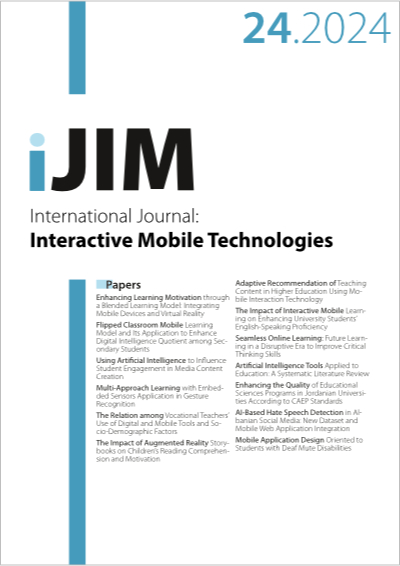Artificial Intelligence Tools Applied to Education: A Systematic Literature Review
DOI:
https://doi.org/10.3991/ijim.v18i24.50055Keywords:
Educación, Enseñanza, Herramientas, Inteligencia artificial, TecnologíaAbstract
Today, the world is in a process of continuous change, and the digital era has positively influenced education by revolutionizing the traditional approach through the adoption of artificial intelligence (AI) tools. The aim of this paper is to analyze how AI is transforming teaching and learning processes. To this end, a systematic literature review was conducted, selecting 33 articles that addressed the research topic from various perspectives. To summarize the information, the PRISMA methodology was used, which involved an exhaustive search in academic databases, the application of inclusion and exclusion criteria to select relevant studies, and a detailed analysis of the chosen articles, developed between 2019 and 2024, which contained relevant characteristics for the study. In parallel, specific research questions were established to guide the review, addressing pedagogical, practical, ethical, and social aspects related to the integration of AI in education. The results highlighted the potential benefits of AI in learning personalization, teaching efficiency, and access to advanced educational resources. In addition, challenges in AI implementation were identified, such as the generation of incorrect information and biases in training data. It is concluded that AI can improve personalization of learning, teaching efficiency, and access to advanced resources, but it is crucial to address ethical challenges such as data privacy, equity in access to technology, transparency of algorithms, and impact on students’ autonomy and critical thinking.
Downloads
Published
How to Cite
Issue
Section
License
Copyright (c) 2024 Carlos Yerbabuena, Alexandra Villagomez, Ana Yerbabuena, Nathalie Mendoza

This work is licensed under a Creative Commons Attribution 4.0 International License.



